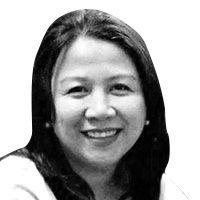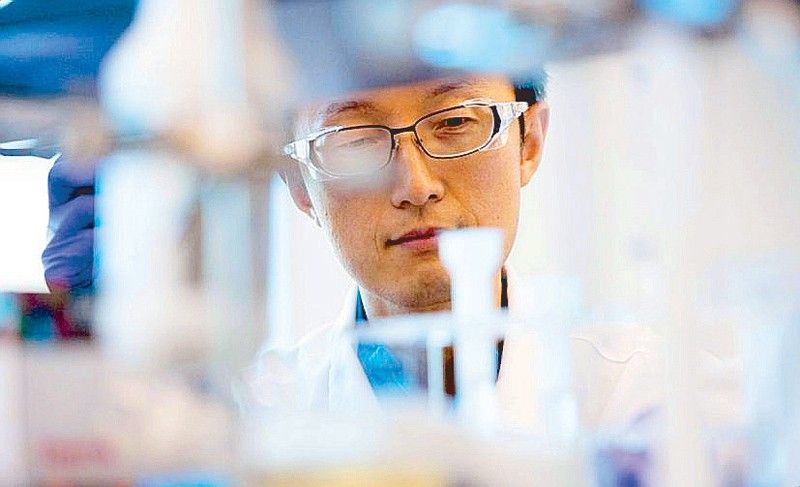Is a COVID-19 vaccine the ultimate answer to this pandemic?


Eight months into the pandemic, there are still no signs we’re going back to normal yet. As long as someone in the world has the virus, breakouts can and will keep recurring without the vaccine and stringent controls to contain them.
And even if the country you’re based in has already flattened the curve, that doesn’t mean you can relax and let your guard down. Not yet.
“COVID-19 is changing the world in so many ways,” said Dorthe Mikkelsen, MSD regional president in Asia-Pacific, in a one-on-one interview via Zoom. “Here in Denmark, the situation is quite good. It’s a small country so there are only a couple hundred cases, relative to the numbers in the Philippines. But there are flares we see all across the globe. Until a vaccine is developed, a patient’s life is at risk. We are all at risk.”
In laboratories around the world, scientists are racing to develop a vaccine to beat COVID-19.

“This pandemic is an unrivaled scientific and global health challenge, and demands collaboration from across the scientific community,” noted Mikkelsen. “As one of the few companies that has continued to invest in both vaccines and anti-infective medicines, we at MSD are working to help advance vaccine and antiviral efforts as part of our overall COVID-19 response.”
MSD has announced two SARS-CoV-2/COVID-19 vaccine development efforts: one through collaboration with IAVI and the other through its acquisition of Themis.
“We also announced a collaboration with Ridgeback Bio to develop a novel antiviral candidate,” shared Mikkelsen.
The lady boss believes that a range of medicines and vaccines will be needed to end the pandemic.
“And we will continue to pursue multiple pathways, including an expansive internal research program, and collaborate with others,” she added.
Having a safe and effective vaccine is only part of the solution.
“Acceptance of the COVID-19 vaccine is paramount, and this hinges largely upon trust in vaccines and the systems that create, approve and deliver them.”
Vaccine saves lives
Vaccine hesitancy claims lives. Losing a loved one to something that could have been prevented in the first place is heartbreaking.
With the significant global attention currently focused on how to deal with the COVID-19 pandemic, other health concerns like cancer screening, treatment and vaccination programs have taken a backseat, not only due to financial issues, but also fears of contracting the virus.
However, slowing down or stopping access to vaccination and cancer treatments may increase the outbreaks of other vaccine-preventable diseases.
“Data from WHO and UNICEF show that in the area of vaccines, there might be a risk to as many as 80 million children under the age of one who might be at risk of diseases like diphtheria and measles because of the disruption of the vaccination programs,” warned Mikkelsen.
In the Philippines, the anti-polio immunization program could be potentially affected, with fewer people showing up in barangay health centers.
“This is an area where the government and multiple stakeholders can work together to spread awareness and share guidelines so that the people are properly informed of what they can and can’t do in this situation,” she added.
Patients come first
For more than a century, MSD has been researching and developing medicines and vaccines for many of the world’s most challenging diseases.
As one of the leading global biopharmaceutical companies with a 125-plus-year history of working to make a difference, MSD strives to make a difference by bringing inventions to people across the globe.
In the Philippines, MSD has been delivering innovative health solutions — backed by pioneering research, development and science, to advance the prevention and treatment of various challenging diseases. These include vaccines to prevent life-threatening infectious diseases such as HPV, pneumonia, measles and rotavirus; and innovative medicines to treat cancer, diabetes and infections.
Since establishing its presence in the country, MSD has been bringing breakthroughs founded on a legacy of invention to help redefine healthcare for the Filipino for 25 years.
“Aside from COVID-19, there are a lot of unmet medical needs, particularly in Asia-Pacific,” lamented Mikkelsen. “In oncology, for instance, there are more than a million patients diagnosed with metastatic cancer like lung, melanoma, head and neck, bladder, and triple-negative breast cancer.”
According to Mikkelsen, cancer is an area where “we don’t have the luxury of time.”
“Once people are diagnosed, there may not be too much time to take action,” she lamented. “I’m aware of the Philippines’ National Integrated Cancer Control Act. While it’s still a work in progress, cancer care in the country can greatly improve.”
In the Philippines, MSD has a multi-stakeholder advocacy campaign, “Hope From Within,” which raises awareness and strengthens the fight against cancer through education, early testing, new treatments and awareness.
“Hopefully, that can be part of improving the situation for Filipino cancer patients.”
Mikkelsen also noted that 100,000 women in the Asia-Pacific die every year from cervical cancer — a disease that is 90 percent preventable through the HVP vaccine.
“With HPV vaccination, cervical cancer can be eliminated,” she stressed. “And then there’s diabetes. In Asia-Pacific, almost 120 million people are affected.” Again, it’s all about developing new, innovative treatments for these diseases.
However, these vaccines or medicines will not work if the patient will not do his/her part in managing his health/disease.
“As simple as washing our hands, getting the right prescription, changing our lifestyles, or how we keep up to date with vaccinations can prevent these diseases. It’s not all about medicines,” stressed Mikkelsen, who manages to strike a healthy balance between her career and personal life.
“What makes me come to work every single day is to see the impact we have made directly for the patients we serve,” enthused the lady executive. “At MSD, we believe that we can make a difference in helping people become healthier and live longer.”



















